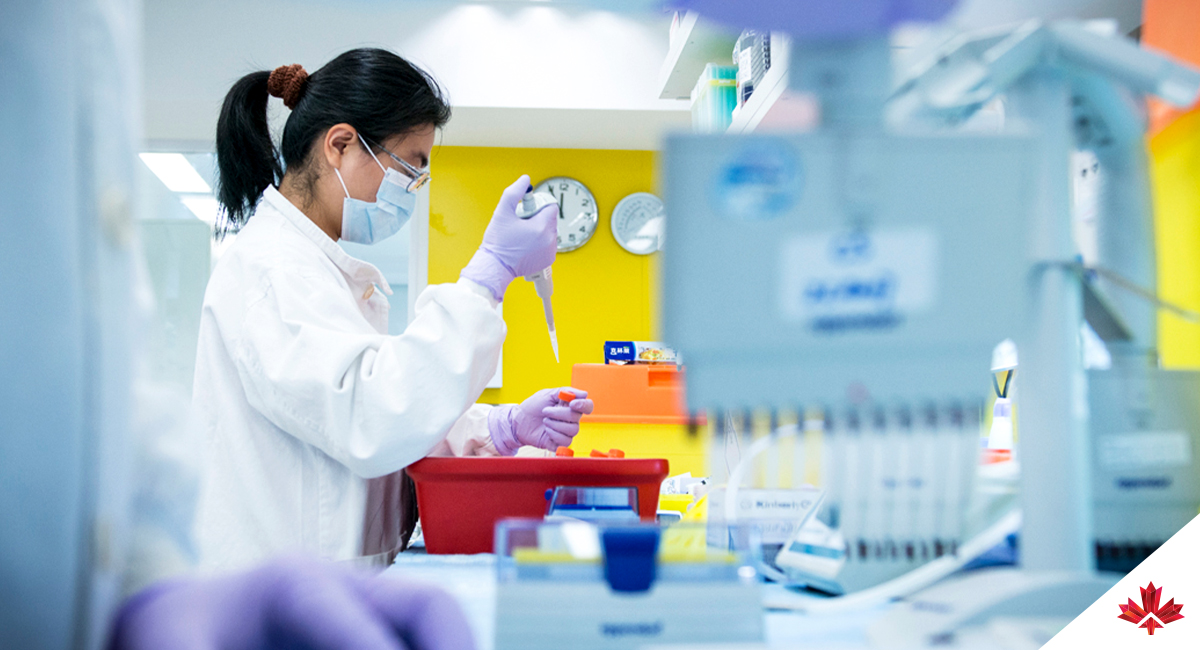On February 27, 2023, one day before Rare Disease Day, U.K.-based biopharmaceutical company AstraZeneca and Alexion, its U.S.-based subsidiary focused on rare diseases, announced a $500 million investment in Mississauga, Ontario.
The investment will expand the existing AstraZeneca R&D Hub and also create a new Alexion Development Hub for rare diseases. This major reinvestment in Canada’s life sciences sector is expected to create 500 scientific and high-tech jobs within two years.
AstraZeneca has had a presence in the Greater Toronto Area (GTA) since 2001 and employs 1,200 people across Canada. Its research and development centre has been focusing on leading global clinical studies in areas including breast, lung and prostate cancer; COVID-19 and chronic kidney disease. Over the past four years, AstraZeneca’s Mississauga R&D facility has doubled in size and now leads more than 120 global clinical studies.
Clinical trials: harnessing the power of rare disease breakthroughs to benefit the entire population
AstraZeneca’s investment represents a huge win for the research community, for rare disease patients and for the life sciences sector in Canada overall, with benefits that will be felt across the entire Canadian population.
Though often having less awareness than treatments and cures, clinical trials play an essential role in advancing science and medicine. Much more accurate at assessing the body’s response to a drug or treatment than animal and in-vitro models, clinical trials are especially important in the case of diseases that don’t have great outcomes, don’t respond to traditional treatments or, in the case of rare diseases, touch a smaller portion of the population and are usually less widely understood by the medical community. In Canada, 3.2 million people live with a rare disease, most of which don’t have a treatment yet.
Research on rare diseases also has a positive impact on the quality of care for the entire population. That’s because they help medical researchers understand some of the key mechanisms in medicine that are not associated with only one type of condition. This means that finding a treatment for one rare disease can impact positively on other more common diseases that behave in a similar way.
Clinical studies represent a life-changing option for many patients in hopes of a cure. Through the preventive role they can play, the research activities can help find new ways to detect, diagnose and prevent diseases through tests or vaccines. Through the discovery opportunities they can offer, clinical studies can bring about new treatments or access to new drugs.
Research in rare and ultra-rare diseases presents unique and significant challenges that require continuous innovation to deliver meaningful medicines for patients and their families.
Christina Archer, Vice President, Development Operations and Canadian Site Head at Alexion, AstraZeneca Rare Disease
Canada needs major partners like AstraZeneca to continue growth in life sciences
Building on AstraZeneca’s multiple investments in Canada over the years – in 2021 alone, AstraZeneca invested $135 million in Canadian research – company CEO Pascal Soriot praised Canada as a place that offers room for even more investments, noting the diverse scientific talent, network of world-class universities, hospitals and research centres that enables work of this magnitude to be carried out.
With 62% of Canadians aged 25–64 having graduated from tertiary education institutions, Canada ranks as the most highly educated country in the world. In 2019 alone, there were more than 200,000 graduates in STEM and in health care. In 2022, Canada also ranked fifth in the world as a Life Sciences Hub, according to the Business Facilities 18th Annual Global Rankings Report. Recognizing all this, it’s no surprise that Canada has more than 820 life sciences companies operating across the country, and that Mississauga itself has become one of the more renowned life sciences clusters on the entire continent, with 165 medtech companies alone that call it home.
For Invest in Canada, the recent AstraZeneca investments are another example of how we seek out the best qualified, committed and engaged global investors to help build a prosperous, sustainable economy for our communities.
AstraZeneca exemplifies the type of company Invest in Canada works so hard to attract: making a long-term commitment, growing continually over time, and helping spur the evolution of research and innovation. We have been proud to work with AstraZeneca over the last three years and I am excited to see them reinvest in Canada, bringing tangible benefits for Canadians across the country.
Laurel Broten, CEO, Invest in Canada
This article was published by: Laura.Stilwell
Visit the original article here



